Bluebottle: A bookish short story
Ten non-fiction books I'm reading this summer
It is time for my annual selection of summer reads for the South African summer. (Here are my choices in 2022, 2021, 2020, 2019 and 2018.)
This year, I asked ChatGPT to write a short story that features the ten books I look forward to reading. The prompt included a rough plot and the blurbs for all eight books. Here goes:
On a serene coastline, as the sun dipped low, a man sat, lost in thought, his hand absentmindedly sifting through the sand. His young son, engaged in the art of sandcastle building, suddenly paused and ventured closer to the water’s edge.
‘Dad, look what I found!’ His voice, filled with awe, cut through the man’s reverie.
Curious, the father joined his son and found him staring at a bluebottle, its vibrant hues painting a stark contrast against the sand. ‘It’s beautiful’, the boy whispered, his eyes wide with fascination.
‘Yes, it is’, the father nodded, appreciating the creature’s deceptive allure. ‘But it’s also dangerous. The bluebottle, or Portuguese man o’ war, isn’t a single organism. It’s a colony, a community of different entities working together. Much like how societies in ancient Africa thrived by innovating and collaborating.’
The boy’s eyes sparkled with interest, prompting the father to delve deeper. ‘Each part has its own role. Some catch prey, others digest it, and some defend. Alone, they can’t survive. Together, they create something extraordinary. Did you know, in history, communities thrived by sharing innovations, just like these creatures share responsibilities?’
His gaze lingered on the bluebottle, a thoughtful expression crossing his face. ‘In a way, we’re like that too. Each of us plays a role in the larger story of life, contributing in different ways.’
‘Do we all have different roles?’ the boy asked, his voice filled with wonder.
‘We do’, the father confirmed. ‘And our roles can change, evolve. But we all contribute to the bigger picture. Just like some economists through history tried to understand, we all have a part in shaping societal structures.’
The bluebottle served as a catalyst, weaving its way into their conversation. The father spoke of ancient civilizations, the interconnectedness of knowledge, and the delicate balance that sustains life.
‘Just like the bluebottle, we rely on patterns and predictions, but we also have the power to choose, to create.’ His voice carried a hint of inspiration. ‘Our wealth, our power – it’s about more than just abundance. Just as Alfani explored in his research, with great wealth comes great social responsibilities.’
The sun had now set, leaving them in the soft embrace of twilight. The conversation flowed seamlessly, exploring themes of complexity, choice, and the narrative of humanity.
‘We live in a world of intricacies, but at its core, it’s about connections, about being part of something larger.’ The father’s eyes met his son’s, a silent promise lingering between them. ‘We’re builders, creators. And just like this sandcastle, we have the power to shape our world, and leave a legacy that speaks of kindness and connectedness.’
‘Our ability to create culture and pass on knowledge defines us, and shapes our future.’


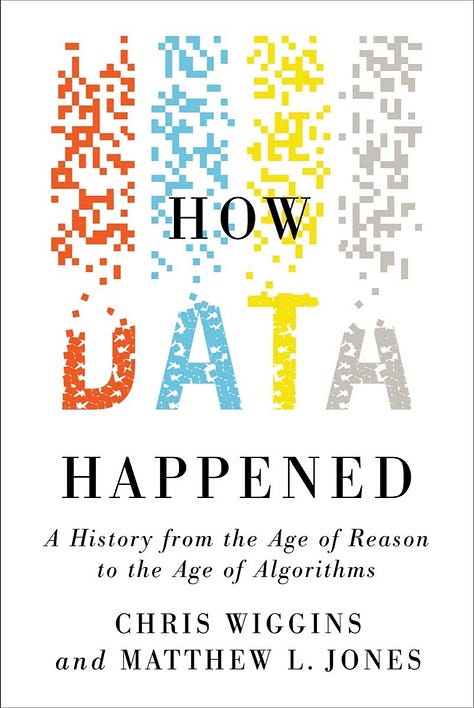

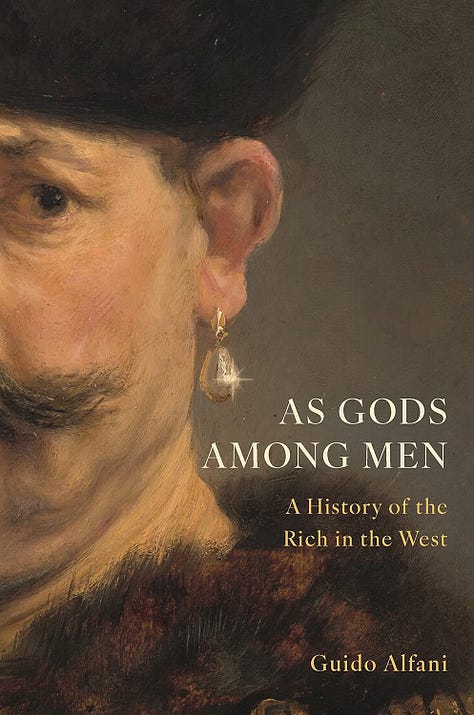
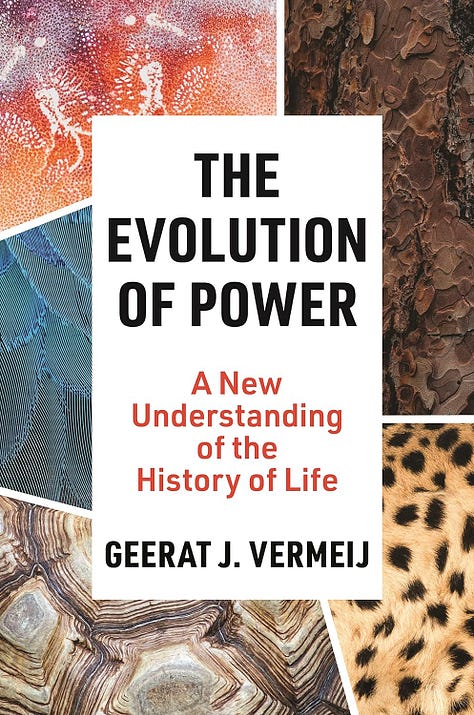

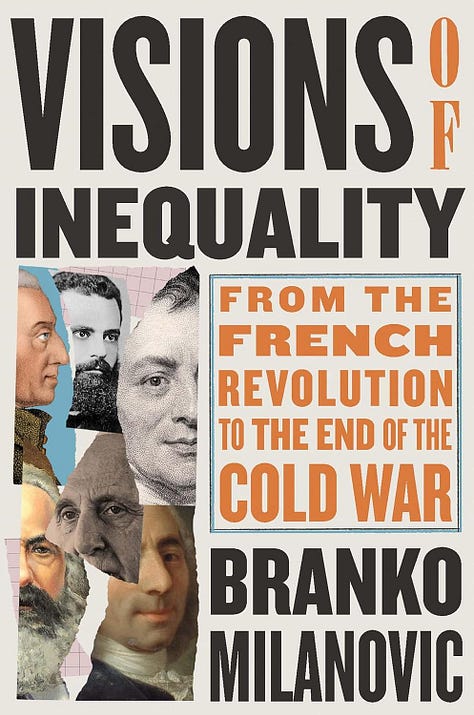
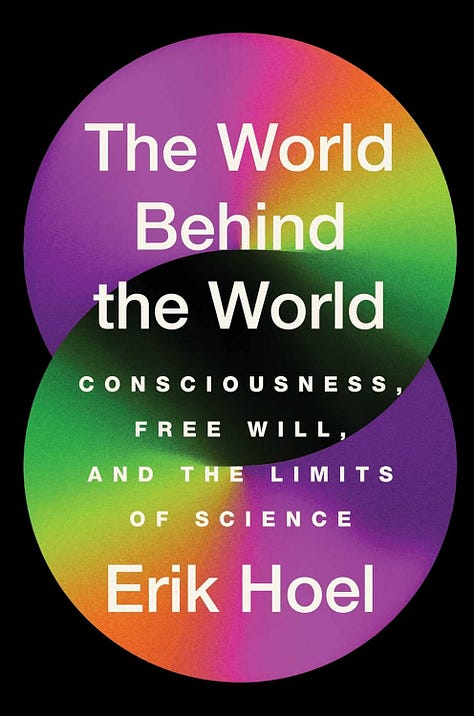
The ten books are (in no particular order):
The Evolution of Power: A New Understanding of the History of Life by Geerat Vermeij reveals the unifying role of power in the evolution of life, detailing how natural selection's influence on power dynamics from individual traits to societal structures shapes our world and challenges us to rethink our human-centric view.
The World Behind the World: Consciousness, Free Will, and the Limits of Science by Erik Hoel (follow Erik on Substack) merges the intrinsic and extrinsic perspectives of human experience, exploring the science of consciousness and its integration with physics.
Visions of Inequality: From the French Revolution to the End of the Cold War, by Branko Milanovic provides a comprehensive exploration of how the concept of income distribution has evolved through the perspectives of six influential economists, highlighting the variability of inequality across different times and societies.
A Theory of Everyone: Who We Are, How We Got Here, and Where We’re Going, by Michael Muthukrishna presents a unified theory of human behavior, culture, and society, exploring the unique human ability to create culture and how understanding the laws of life can address major contemporary challenges.
How Data Happened: A History from the Age of Reason to the Age of Algorithms,
by Chris Wiggins and Matthew L. Jones traces the historical evolution of data, examining its technical, political, and ethical impact on society, and argues for a future where data is used with intentionality and purpose for collective benefit.
As Gods Among Men: A History of the Rich in the West by Guido Alfani presents a comprehensive history of the rich and super-rich in Western society, exploring their paths to wealth, societal roles, and changing public attitudes towards them, with a focus on their often fragile societal position and varying contributions to the common good during crises.
Ancient Africa: A Global History, to 300 CE by Christopher Ehret offers a comprehensive global history of ancient Africa, highlighting its significant role in technological, agricultural, and economic developments, and calls for a reevaluation of Africa’s contributions to world civilisation.
Free Agents: How Evolution Gave Us Free Will, by Kevin Mitchell challenges the notion that free will is an illusion, presenting evidence that human agency and decision-making are evolutionary developments, deeply rooted in the capacities for imagination, introspection, and reasoning.
The Conservative Futurist: How to Create the Sci-Fi World We Were Promised by James Pethokoukis (follow James on Substack) argues that embracing a forward-thinking, risk-taking conservative approach can revive America’s technological progress and economic growth, offering a roadmap to achieve the once-promised sci-fi future.
The Capitalist Manifesto by Johan Norberg makes a compelling case for capitalism and the free market, arguing that moving away from global capitalism would hinder economic growth, exacerbate social exclusion, and harm the world’s most vulnerable populations.
Feel free to add your suggestions in the comment section!
‘Bluebottle: A bookish short story’ was first published on Our Long Walk. Support more such writing by signing up for a paid subscription. As an Amazon Associate, I earn from qualifying purchases. The image was created with Midjourney v5.2.




Thanks for sharing! Looking forward to reading some of these.